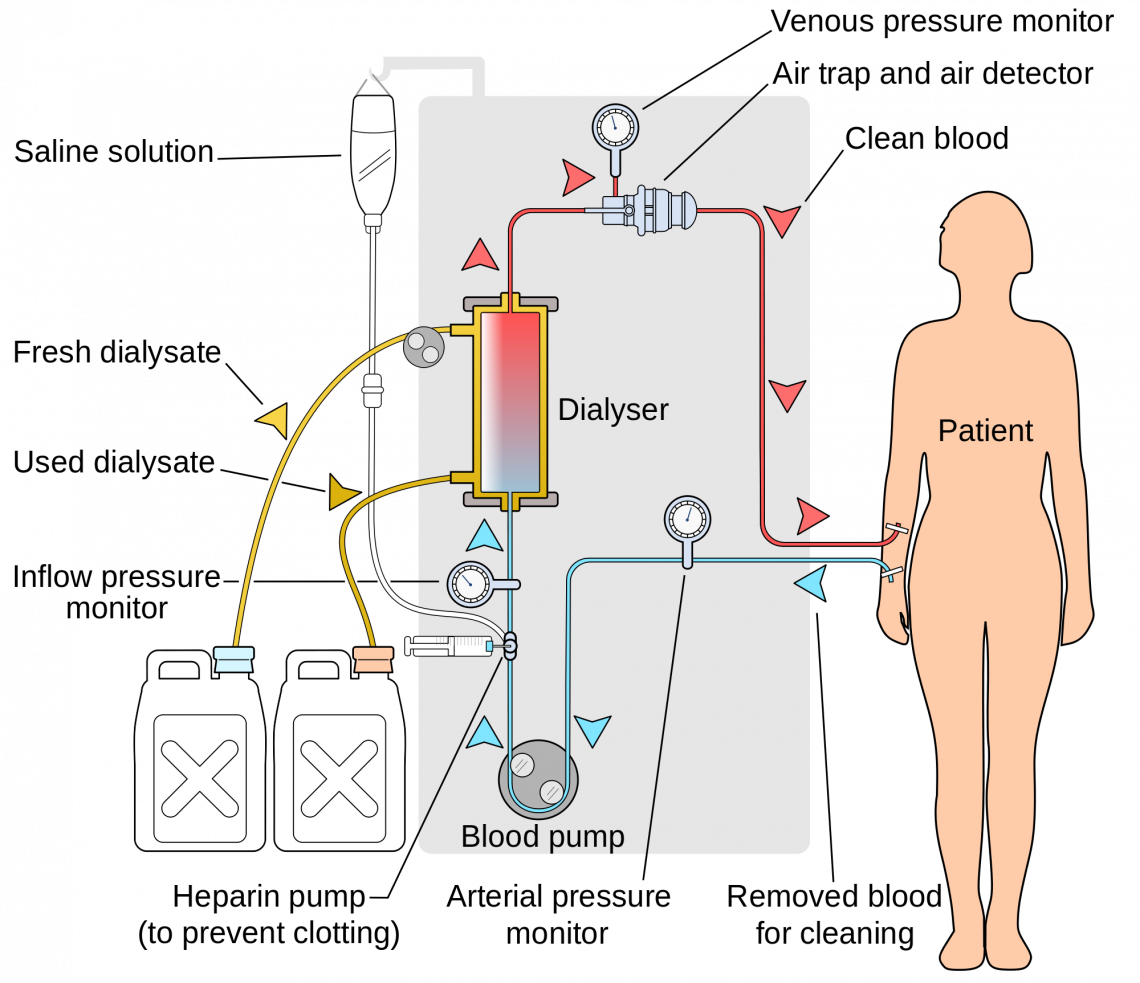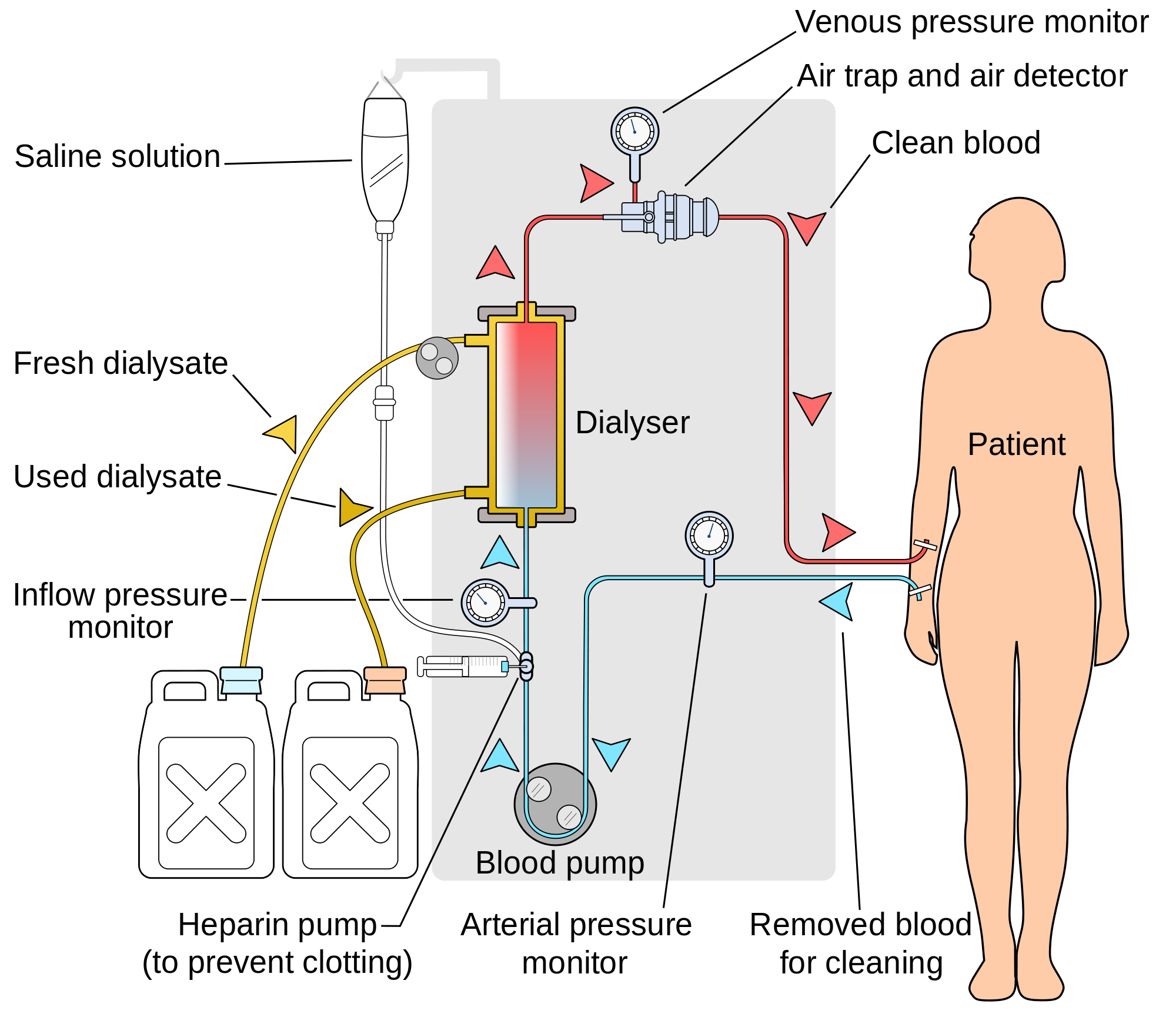
People with End Stage Renal Disease may require a treatment known as hemodialysis. The purpose of hemodialysis is to assist the body with decreasing renal function. When the kidneys fail to filter blood effectively, the process of hemodialysis filters the blood using a machine called a dialyzer outside of the body. In order for the blood to be filtered through the dialyzer, Vascular Access (an exit and entry point for the filtered blood) is required.

3 Types of Vascular Accesses:
Arteriovenous Fistula: A surgical connection made between a vein and artery. A higher volume of blood flow causes the vein to strengthen and increase in size. An A/V Fistula will need to be created several months before hemodialysis treatment so it will have to mature properly.
Arteriovenous Graft: A connection between a vein and artery using a looped tube.
Venous Catheter: Typically for short-term use, if hemodialysis is needed more urgently. Usually inserted into the neck, chest, or upper leg.
How PVS Can Help:
If you or someone you know requires hemodialysis access, or are having issues with an existing access, we provide the following surgical and radiological interventional procedures and solutions:
- A/V Fistula Creations
- A/V Graft placements
- Balloon Angioplasty for narrowing vessels
- Dialysis catheter placements or exchanges
- Peripheral Vascular and Arterial disease assesment and intervention
- Correcting re-circulation problems
- High arterial or venous pressures
- Bounding Pulses (stenosis)
- Swelling in the access arm (central stenosis)
- Non or slow maturing A/V fistulas
- Fistulagrams for poor adequacy results
At PVS, Physicians are available every day to address these issues, and our flexible scheduling options allow for booking appointments as soon as issues arise. After hours? Use our easy online appointment request option when it is convenient to you.
